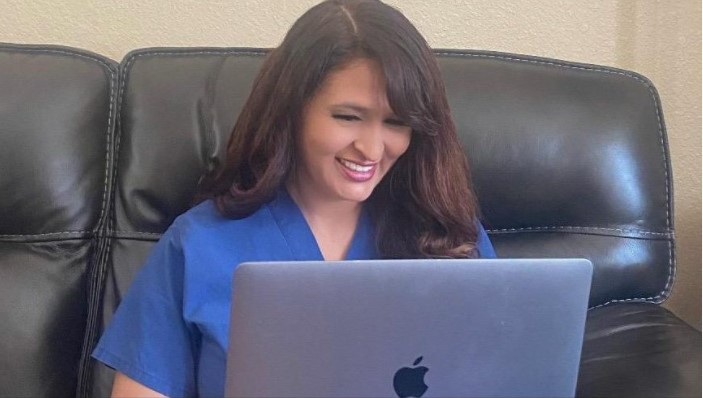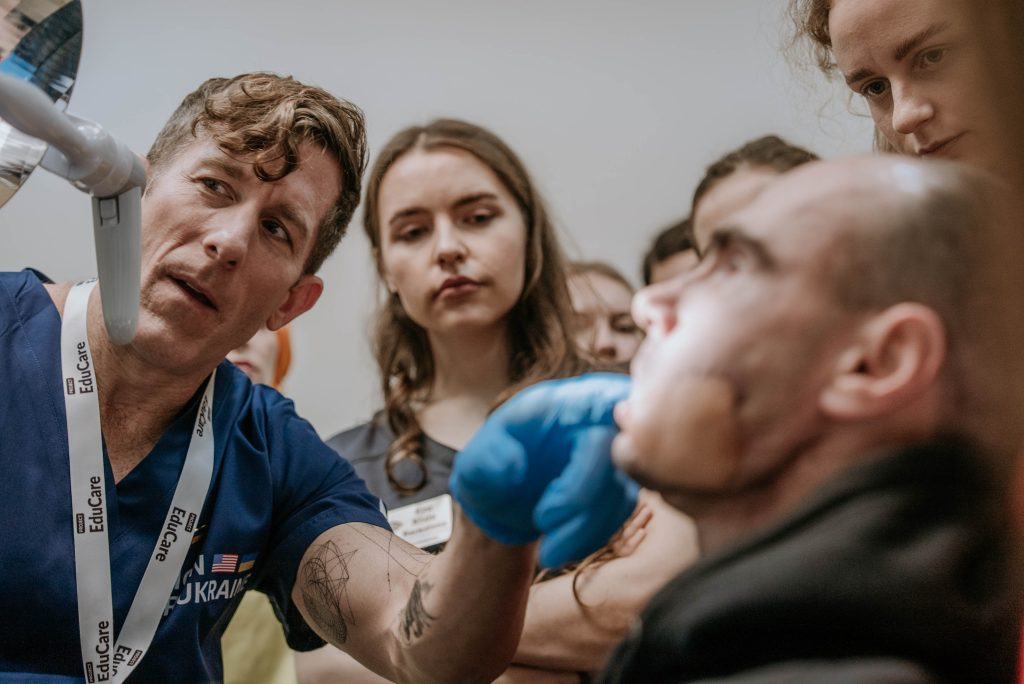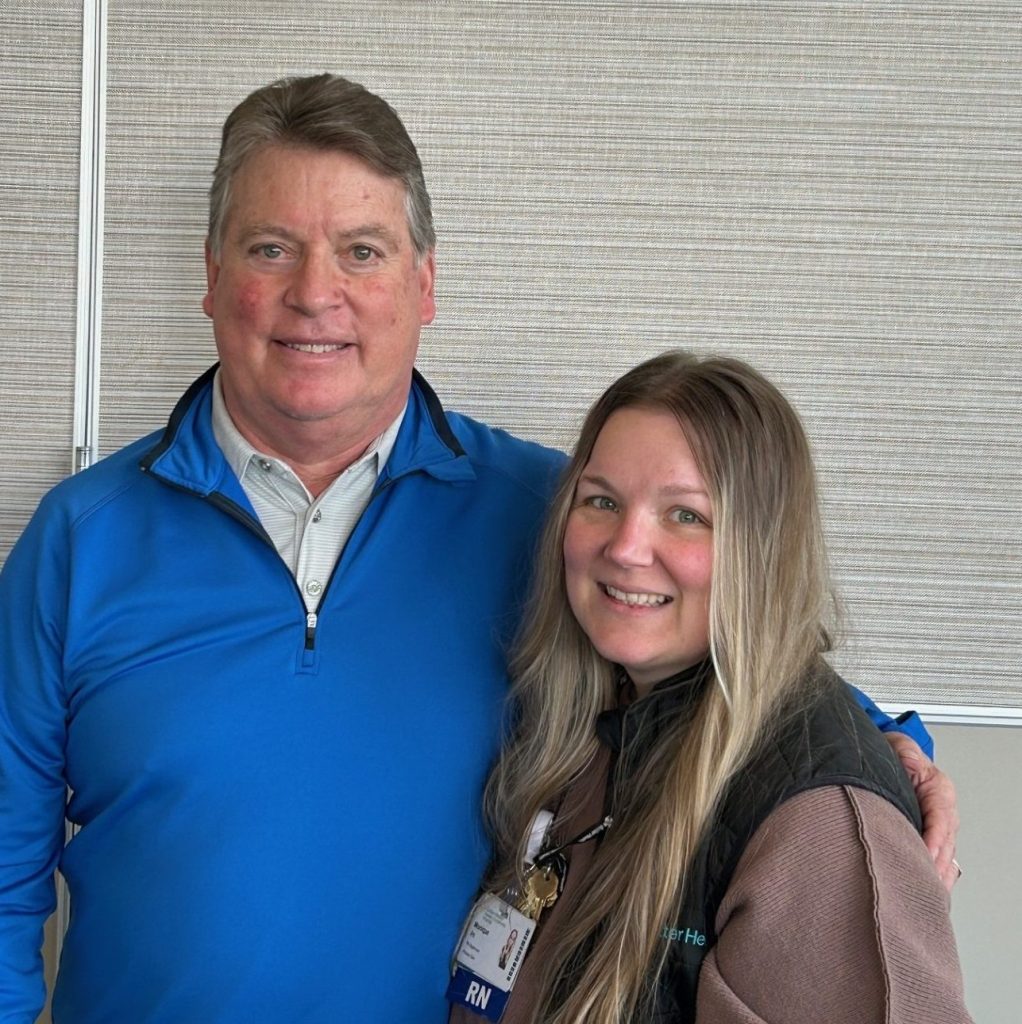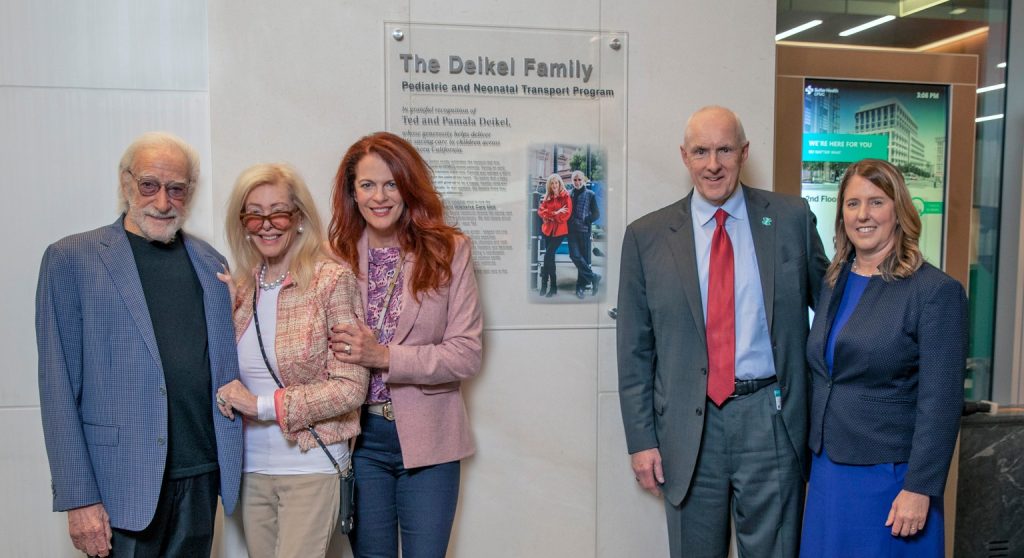By Emma Dugas and Liz Madison, Vitals contributors
When she isn’t spending time with her family or taking care of patients, Liz Roman, a physician assistant at Palo Alto Medical Foundation, is writing.
In fact, Roman’s writing habit has blossomed, from nightly journal entries to short works of fiction. The change, she says, was inspired by two forces: the coronavirus pandemic and creative outlets offered through her employer, Sutter Health.
Medical professionals’ mental health has been tested throughout this pandemic. Aimed at supporting mental well-being, the offerings include a Writing for Wellness class, multiple workshops, a regular writing group and a book club, all conducted virtually. Many of the current programs were developed by Claire Unis, M.D., and Antoinette Rose, M.D., who cite evidence that expressive writing and art appreciation have been linked with improved mood and wellbeing. It can decrease stress levels and depressive symptoms. It can also help lower blood pressure and improve lung and liver function.
Just one part of Sutter’s “Joy of Work” initiative, which focuses on fostering a culture of wellness, Roman says the sessions are important to her self-care routine.
“It helps me recharge and remember to always look for the good in people and situations.”
Rupinder Deol, a nurse practitioner with Sutter Medical Foundation, says the workshops also give her and her colleagues a safe space to relate and reflect on their roles as care providers—in a novel way.
“It is a shared experience that is therapeutic and enlightening,” she said.
Art as Inspiration
Roman’s favorite workshops each begin with a short story, poem or art piece that acts as inspiration for group discussion and individual free-writing. And while most sessions over the past year haven’t explicitly focused on COVID-19, Roman says the pandemic is an omnipresent character regardless.
“In one session we started by looking at a photograph of an elderly couple sitting on the sidewalk. There was nothing that directly referenced the pandemic, but we wondered aloud if the couple lost anyone to the virus or were made more isolated because of it.”
This kind of reflection led Roman to spontaneously write about what it means to be someone’s “rock” – a stable and strong support person. Roman also thought about the “rocks” she’s had throughout her life, including her godmother who died from COVID-19 in December of last year.
“Using my creativity alongside other medical providers has made me feel more connected to my colleagues and my work—it’s been a huge social support.”
Anyone can tap into the benefits of writing—not just medical professionals. Feeling inspired, but don’t know where to start? Dr. Unis provides some suggestions:
• Write a letter to someone, real or imaginary, who loves you unconditionally. Because you won’t mail it, you don’t need to edit it. Just write about your day with a sympathetic audience in mind.
• Use a writing prompt (there are many online) or even a random word (randomwordgenerator.com can be useful) and write what comes to mind.
• Describe a moment of realization, or disappointment, or any emotionally pivotal moment.
• Describe a place that holds significance for you, using as many sensory details as you can.
Not Lost in Translation
Roman’s creative outlets not only kept her positive throughout the pandemic, they have also improved how she cares for patients. She says she now feels more comfortable responding to a patient’s emotional needs, in addition to their physical ones.
“I routinely conduct video visits with patients who have recently been diagnosed with COVID-19, checking to see how they’re doing, if they need medication and making referrals to research studies. My medical training kicks in and I’m cataloging what symptoms I see and hear, but at the same time I’m able to recognize the fear and concern these patients have. I find that it’s just as important to give comfort and reassurance as it is to give medical advice during these visits.”
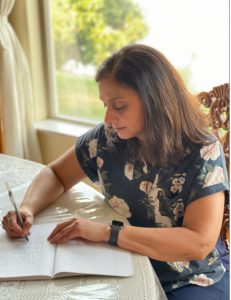
Rupinder Deol, nurse practitioner, writes at home in her journal.
Deol also sees a clinical benefit. In her role supporting a high-risk diabetes clinic and medical weight management in Roseville, Calif., she encourages journaling for some patients. The exercise is meant to help reveal what may trigger patients during setbacks or when they encounter obstacles. The act of slowing down and taking the time to write things out can offer perspectives that may not have appeared before. She can appreciate that byproduct since her own outlook has changed through writing. And in doing so, it gives her greater appreciation for the artform and how it can support her patients.
“It can shape our practices and our outlook on life,” Deol said.
Roman says writing has helped her better understand her own emotions and humanity, too. It has allowed her to assimilate the challenges and joys of providing medical care during a pandemic. She knows that this is a profound period in history and keeps every piece of writing as a record of her experience.
“I hope to write a memoir one day, to tie together all the lessons from my unconventional life; what it’s all meant.”
That will certainly be a story worth reading.

